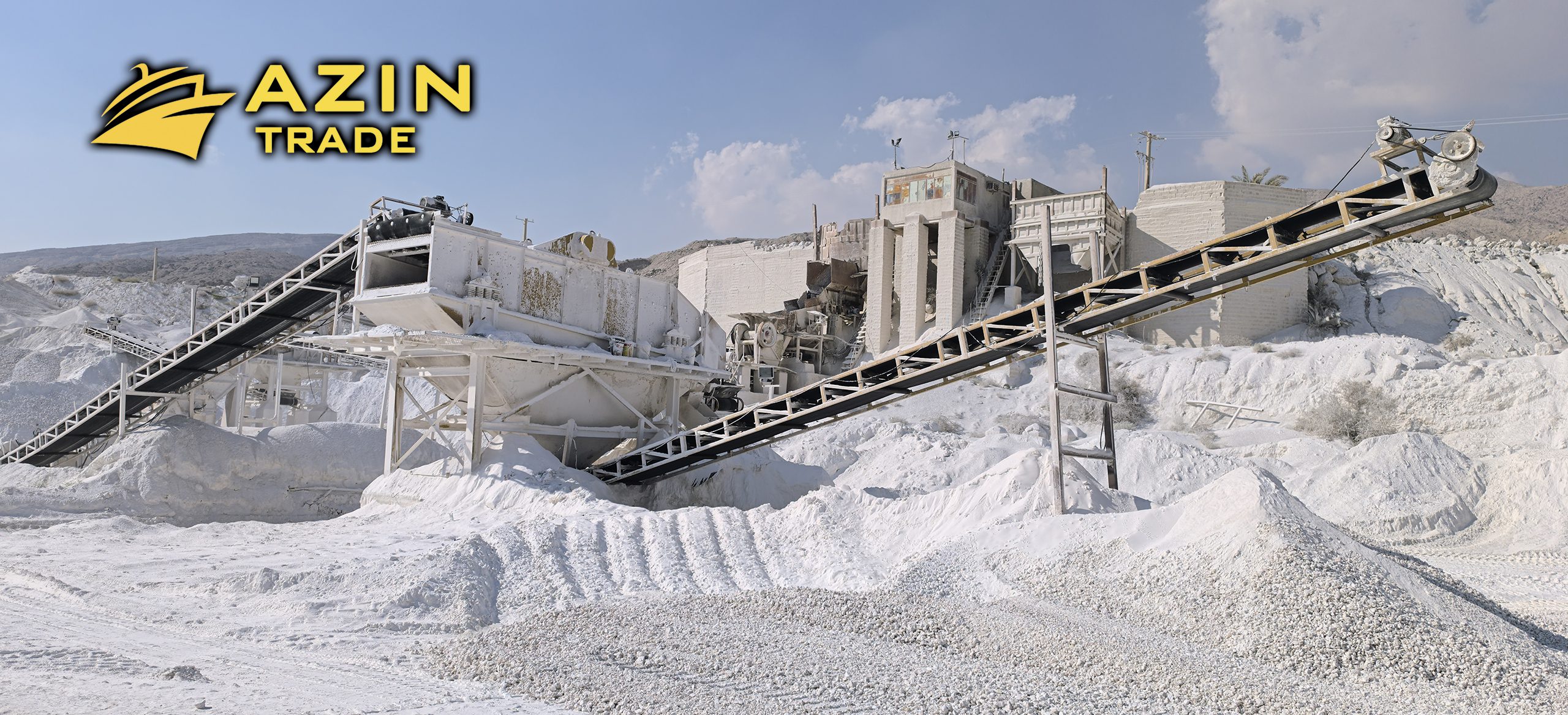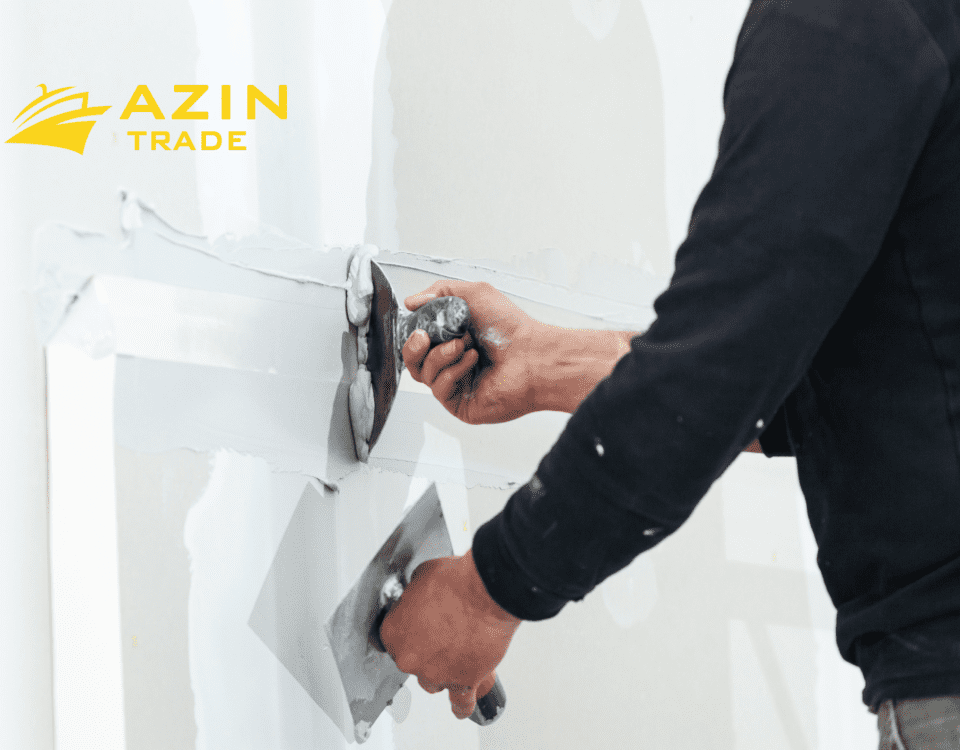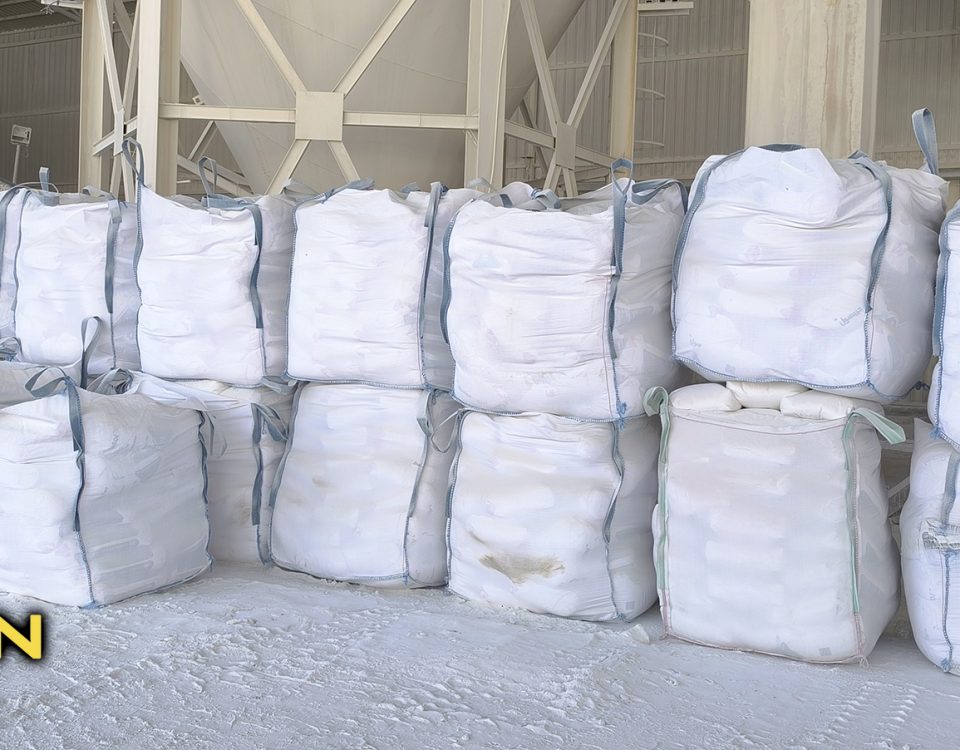Exploring Iran's Rich Gypsum Reserves: A Global Powerhouse in Mineral Production
In the realm of construction materials, gypsum holds a central place as an essential component in a wide array of products. Iran, home to one of the world’s largest gypsum reserves, stands out as a leading exporter and producer of this mineral. As the second-largest reserve globally, Iran’s gypsum industry thrives on several unique features, from rich, accessible deposits to high-quality mineral content. These factors collectively boost Iran’s gypsum market, placing it at a competitive advantage in the global economy. This article will explore the various facets of Iran’s gypsum sector, highlighting its strategic benefits, growth potential, and its role in international trade.
Unmatched Gypsum Reserves and Surface-Level Advantage
Iran’s gypsum mines are renowned not only for their abundance but also for their accessibility. With reserves exceeding 200 million tons, the country holds a unique position as a major gypsum producer, ranking just after China in terms of gypsum volume. This substantial deposit size enables Iran to meet high domestic demand and fuels its expanding role in global exports.
One of the most notable advantages of Iranian gypsum mines is their surface-level deposits, which set them apart from those in other countries where gypsum is often found deeper underground. In many nations, significant digging and tunneling are required to access the mineral, driving up extraction costs and operational complexity. In contrast, Iranian gypsum can be reached with minimal excavation, which translates to lower labor and fuel costs and shorter extraction timelines. This surface-level accessibility makes production highly cost-effective, allowing Iranian producers to supply markets affordably while maintaining healthy profit margins.
High Purity and Quality: The Edge of Iranian Gypsum
Iranian gypsum is celebrated for its high purity and quality, characteristics that make it suitable for a range of applications beyond construction. Gypsum is widely used in agriculture as a natural soil conditioner and organic fertilizer. Its rich calcium and sulfur content help improve soil structure, aiding crop growth and enhancing water retention in soil. This agricultural use is becoming increasingly relevant as sustainable farming practices gain traction worldwide.
Moreover, Iranian gypsum’s purity qualifies it for applications in the health sector. It is used in various medical products, dental casts, and even in food production for its mineral content. This versatility further elevates the mineral’s value, as Iranian gypsum producers can cater to diverse industries that demand high standards of mineral quality.
Export Powerhouse: Iran’s Geographical and Economic Advantages
Iran's strategic geographical location places it within close proximity to large markets in Asia, the Middle East, and parts of Europe. With major export markets just a few hours' shipping time from Iran’s southern ports, Iranian gypsum companies enjoy a logistical edge that reduces shipping time and costs. Countries like Iraq, India, and the UAE are key destinations for Iranian gypsum exports, consistently generating demand that bolsters Iran’s trade revenue.
The competitive cost structure of Iranian gypsum production further strengthens its viability in global markets. The combination of surface-level deposits and minimal production expenses enables Iran to export gypsum at prices that other gypsum-producing nations find challenging to match. This pricing advantage has solidified Iran’s position as a preferred supplier of gypsum, particularly in regional markets where construction and infrastructure development are on the rise.

The Role of Technology and Sustainable Practices in Iran’s Gypsum Mining
As global environmental awareness grows, the gypsum industry, like many others, faces pressure to adopt sustainable practices. Iranian gypsum companies are increasingly integrating technologies that improve mining efficiency and reduce environmental impact. By embracing modern extraction methods, Iranian producers minimize resource wastage, ensuring that each mine’s yield is maximized without unnecessary depletion of natural reserves.
Additionally, companies in Iran are investing in eco-friendly techniques for processing gypsum. These include energy-efficient machinery and dust suppression systems that mitigate the environmental footprint of mining activities. Such advancements not only help the environment but also appeal to international clients who are increasingly considering sustainability when choosing suppliers.
Iran’s Expanding Gypsum Production Capacity and Infrastructure Investment
To meet growing international demand, Iran is expanding its gypsum production capacity. The country’s mineral industry has invested in new facilities and upgraded ports and transportation infrastructure to streamline exports. These upgrades include more efficient loading docks and faster port operations, which facilitate high-volume shipments. As a result, Iran is better positioned to scale its gypsum exports to meet rising demands across diverse sectors.
This increased production capability has led to significant growth in Iran’s cement and construction sectors as well. Gypsum, an essential component in cement production, supports Iran’s broader industrial growth by fueling its thriving cement industry. As new cement factories emerge and existing ones expand, Iran’s domestic gypsum demand has risen alongside exports. This interconnected growth enhances the stability of Iran’s gypsum sector, as it remains robust even amid fluctuating global market conditions.
Market Opportunities and Challenges for Iranian Gypsum
While Iran’s gypsum sector enjoys a range of strategic advantages, it also faces challenges, particularly due to geopolitical factors. Economic sanctions have posed hurdles for Iranian exports, limiting access to some international markets. Additionally, financial restrictions impact Iran’s ability to invest in more advanced mining equipment or expand to certain regions.
Nonetheless, the high demand for gypsum in nearby countries, particularly those in the Middle East and Asia, continues to sustain Iran’s export potential. Growing urbanization in these regions fuels construction projects that rely heavily on gypsum for drywall, plaster, and other building materials. Iranian gypsum remains competitive in these markets, and demand is expected to persist as infrastructure projects continue.
Azintrade’s Role in Promoting Iranian Gypsum
One prominent player in Iran’s gypsum market is Azintrade, a well-established producer and exporter. Known for its commitment to quality and efficient production, Azintrade actively contributes to Iran’s status as a major gypsum supplier. The company leverages the country’s natural resource advantages, combined with cost-effective production practices, to deliver high-quality gypsum to international markets.
Azintrade’s strategic approach includes building strong partnerships with clients across various sectors, from construction to agriculture, to expand its global reach. By adhering to rigorous quality standards, the company has earned a reputation for reliability and excellence. Azintrade also places emphasis on sustainable mining practices, aiming to reduce its environmental footprint through innovative extraction methods and responsible resource management.
The Future of Iran’s Gypsum Industry
Looking ahead, Iran’s gypsum industry is positioned for continued growth, driven by its rich natural reserves, cost-efficient production, and expanding global demand. As the construction and agricultural sectors flourish worldwide, the demand for gypsum will likely follow suit, creating ongoing opportunities for Iranian exporters.
Iran’s potential for innovation in gypsum production, along with companies like Azintrade leading the way in sustainability and market expansion, bodes well for the industry’s future. While challenges like sanctions and market limitations remain, the sector’s resilience and resourcefulness continue to propel it forward.
In summary, Iran’s gypsum industry is a cornerstone of its mineral sector, combining ample reserves, low production costs, and high-quality mineral content. These factors, along with the efforts of dedicated companies like Azintrade, make Iran a key player in the global gypsum market. With strategic investment in infrastructure and sustainable practices, the future of Iran’s gypsum industry looks bright, offering a wealth of opportunities for domestic and international markets alike.




